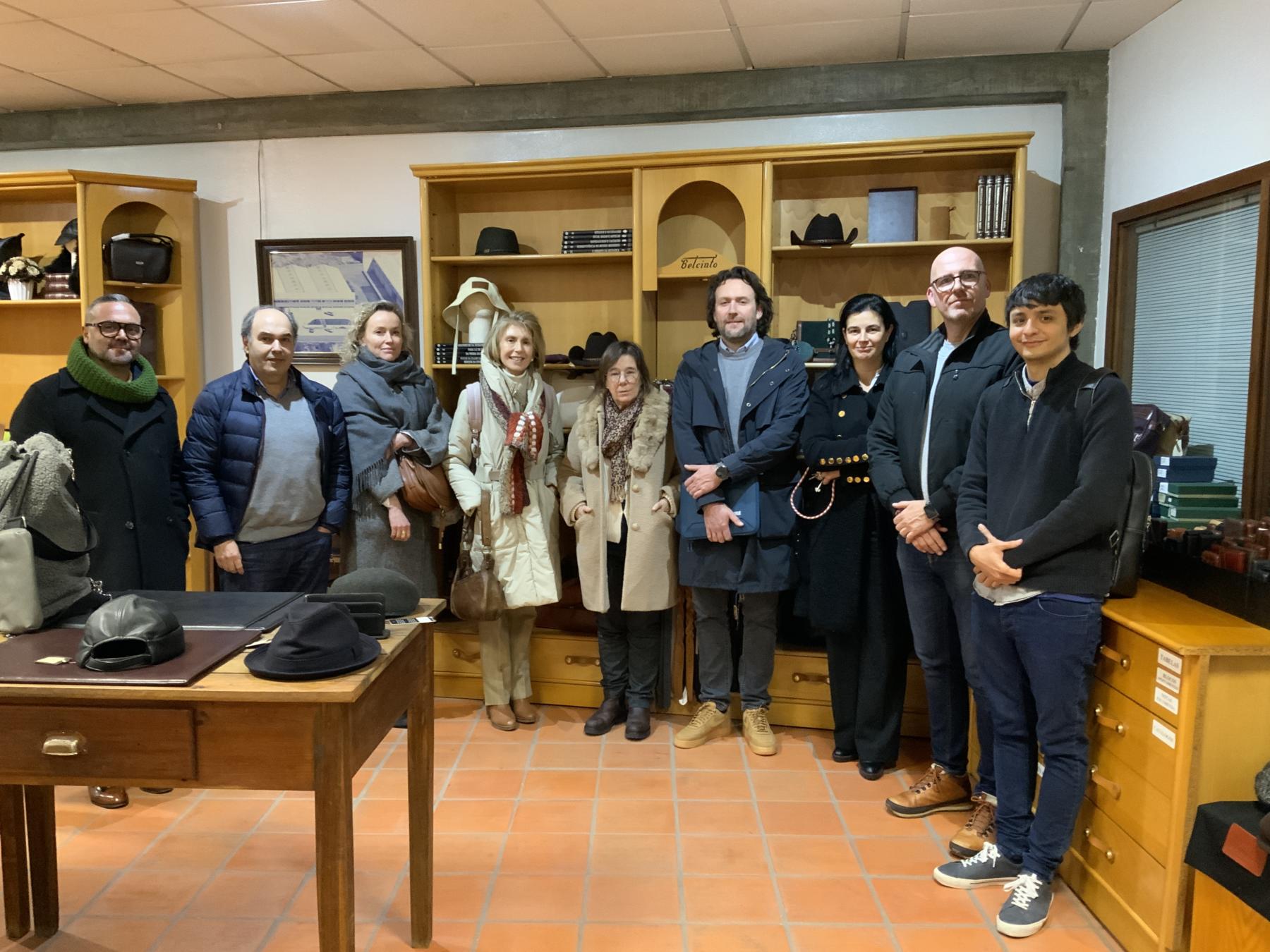Policies
Environmental Policy

Climate change is a reality, and we are constantly being reminded of the increasing natural catastrophes happening around us. Policy-makers, industry and citizens are progressively understanding the immediate dangers it represents, and wish to react and to make a difference in improving the sustainability of the planet and the use of natural resources.
The EU Green Deal aims at carbon neutrality by 2050. Almost two years after its publication, consumers show more interest than ever in the conditions and place in which their goods are manufactured, especially as a reflection of satisfactory environmental and social standards.
Measures stipulated in the Green Deal include i.a. setting minimum requirements to prevent environmentally harmful products from being placed on the EU market; introducing an electronic product passport with information on composition, origin, repair and dismantling possibilities; new legislation, including targets and measures for tackling over-packaging and waste generation; an EU model for separate waste collection.
The request for information on the product’s origin, environmental and social standards trend has been confirmed and accelerated by the long-lasting Covid-19 pandemic. In this context and considering the upcoming proposal for an EU Directive on Sustainable Product Policy Initiative Policy, the CEC advocates for EU rules setting requirements for a mandatory origin marking scheme for consumer goods placed on the EU market to be displayed in the upcoming electronic product passport. Such origin indication would be a complementary tool to a traceability system and it will provide trustworthy information along supply chains on the environmental, social and quality standards of production, while further boosting the demand for sustainable products and ensuring free and fair trade.
Circular Economy
The CEC supports the European Commission’s Initiatives included in the new Circular Economy Action Plan, such as the Sustainable Products Policy Initiative, Green Claims, Empowering the consumers for the Green transition, EU Strategy for Textiles, and the creation of a harmonised model for the separate collection of waste.
The CEC also aligns with Commission’s efforts and targets set in the Plastic Strategy to reduce single-use plastic and protect the environment from plastic pollution whilst fostering growth and innovation.
Producing performing shoes with lower product environmental footprint (PEF)
The European footwear industry is determined to increase the level of sustainability and innovation in the shoes’ production and recycling process. More and more footwear companies are rethinking their business models, and want to create both innovative and attractive products through efficient technologies and processes that take into consideration the environmental challenges with the minimum cost increase.
The final objective is to build a resilient EU footwear industry that contributes to the green transition, offering to consumers the possibility to buy the best products manufactured in line with European environmental and safety standards, while adapting to a sustainable behaviour that implies recycle, re-use and repair of products.
The key priorities of the industry are the efficient use of resources and the reduction of CO2 and greenhouses gases emissions, aiming at a low carbon economy. The implementation of a Product Environmental Footprint (PEF) methodology and the Product Environmental Footprint Category Rules (PEFCRs) as a common way of measuring environmental performance will support companies in reaching such priorities. In concrete, the PEFCRs are specific guidelines to calculate the relevant environmental information of products. This European initiative launched by the Commission in 2013 consists of three phases: Environmental footprint pilot phase, Transition phase currently ongoing, and the possible adoption of policies implementing the PEF. The objective is to produce a harmonised method for assessing the PEF and to put an end to the various “green labels” which are confusing for consumers. The advantage of a PEF benchmark is two-fold: it will reduce costs that companies are facing, and it will offer consumers a clear and unique understanding of the labels used.
As part of these efforts, the CEC participates, as a Member of the Technical Secretariat for Apparel and Footwear, in the development and implementation of PFCRs for certain categories of apparel and footwear products during the Transition Phase.
In addition, the CEC and national footwear associations, research centres and companies from Italy, Spain, Portugal and Romania partnered up in the LIFE GreenShoes4All project co-funded by the European Commission “Footwear environmental footprint category rules implementation and innovative green shoes eco-design and recycling”, which supports the European footwear industry in reducing the environmental impact of footwear products, the CO2 and other greenhouse gases emissions within the footwear sector, through the development of innovative eco-design concepts and eco-processes in view of obtaining performing shoes.
Chemicals
The CEC is Member of the European Platform for Chemicals Using Manufacturing Industries (CheMI), a platform for downstream users of chemicals in manufacturing industries. The platform works as a channel for the downstream users in article producing industries to represent their interests and aims at contributing to the successful implementation of REACH.
CheMI was established in 2003 and its members are EU trade associations representing a variety of sectors and comprising approximately 400.000 companies and 7 million employees, for a turnover of more than € 670 million. CheMI membership consists mainly of SMEs.
CheMI has seats in the high-level groups set by the European Commission and ECHA: CARACAL (Competent Authorities for REACH and CLP), DCG (Director’s Contact Group and the related Sherpa Group), ENES (Exchange Network on Exposure Scenario) and Competent Authorities for Biocidal Products meetings.
Success stories
Circular Economy Industry Platform is a web tool managed by BusinessEurope and its national members that contributes to the EU’s agenda on circular economy. It continuously brings new examples of innovative ways in which industry, SMEs and other business add to the circular economy in Europe. 39 successful projects initiated by TCLF companies have been shared up to today.


